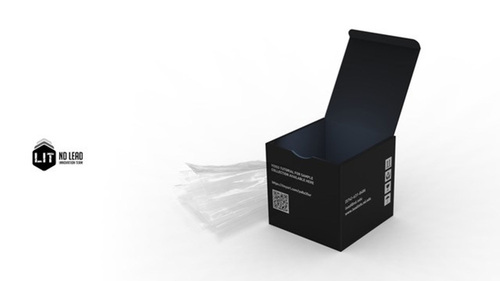
The University of Notre Dame and Indiana University-Purdue University Indianapolis (IUPUI) have received a grant from the U.S. Department of Housing and Urban Development to expand the Notre Dame Lead Innovation Team’s (ND LIT) pilot lead screening program to Indiana’s Marion and Vigo counties. The current program allows St. Joseph County residents to request free lead screening kits for the home, which are then analyzed on campus by researchers who share the results with residents.
“There is no such thing as a safe level of lead, and our goal with these screening kits is to help people identify their home’s lead ‘hot spots.’ Knowing where the dangers are and what to address first can be critical for providing cost-effective solutions for families,” said Heidi Beidinger-Burnett, associate professor of the practice in the Department of Biological Sciences, director of the Master of Science in Global Health program at Notre Dame and co-lead on the grant. “We are so grateful to be able to grow this program beyond St. Joseph County and continue our mission to help eradicate lead poisoning for those in need.”
The expanded program, in partnership with the Marion County Health Department, Indiana University School of Medicine-Terre Haute and Indiana State University, will now provide free lead screening kits at the request of residents living in St. Joseph, Marion and Vigo counties. Families living in a home or rental built before 1978 are strongly encouraged to request a free kit to assess their living environment, as lead poisoning impacts most organs and systems in the body and is particularly devastating to young children.
ND LIT’s website provides short video instructions for participants on how to properly collect dust, paint, soil and water samples throughout their home. Those who participate in the program will receive their test results within two to three weeks, indicating where lead is located throughout their home and at what level — none, some or a critical level of lead.
“At IUPUI we have been assessing contaminants in soil, like lead, as well as a number of other lead-related research programs, making working with ND LIT a natural fit for our goals,” said Gabriel Filippelli, Chancellor’s Professor of Earth Sciences, founding director of the Center for Urban Health at IUPUI and co-lead on the grant. “We are excited to take our work a step further through this collaboration and support the mitigation of lead poisoning in new areas of the state.”
A seed grant from Notre Dame’s Center for Social Concerns kick-started the ND LIT’s research program by helping the team learn more about the toxic lead poisoning of children in St. Joseph County. ND LIT found that instead of homes being completely "encapsulated by lead," there were often specific locations wreaking the most havoc on families. This research led to the development of the free lead screening kit program.
In addition to supporting the expansion of the program, funding has also been provided to support a community awareness campaign. Researchers are working with the Indiana Clinical and Translational Sciences Institute, whose members include Indiana University, Notre Dame and Purdue University, to reach those at the highest risk of toxic lead poisoning and encourage participation in the program.
In addition to Beidinger-Burnett, ND LIT is led by Marya Lieberman, professor in the Department of Chemistry and Biochemistry; Graham Peaslee, professor in the Department of Physics and concurrent professor in the Department of Chemistry and Biochemistry; and Matthew Sisk, associate librarian at Hesburgh Libraries.
To receive a free lead screening kit, visit https://leadinfo.nd.edu/lead-test-kits/.
Originally published by at research.nd.edu on Feb. 17.